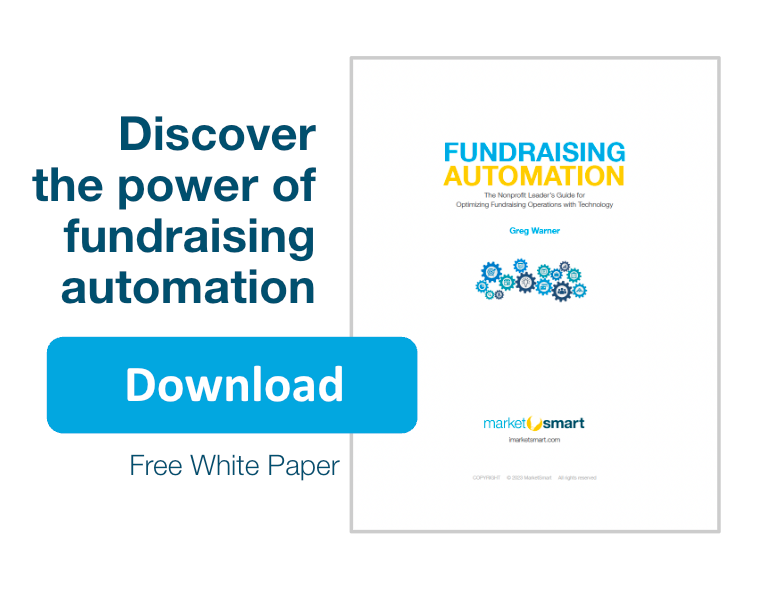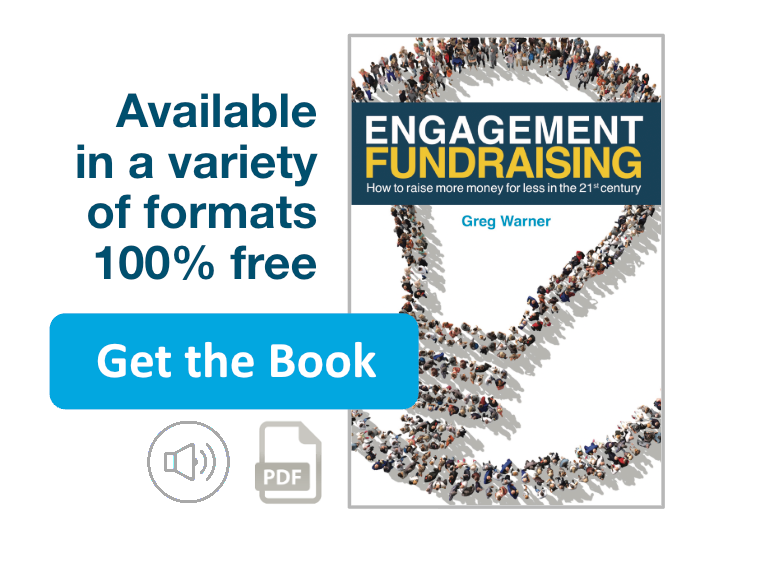Donors give because giving enhances some aspect of their identity. They give for many other reasons too, but their final critical decisions regarding which organizations to give to, and how much to give, are linked very closely to their personal identity.
The biggest gifts, the most transformational gifts – these happen when a donor can see and feel how giving will advance their personal hero story. In other words, giving enhances their identity, and represents the kind of person they want to be, how they see themselves.
Thus, as a fundraiser, part of your job when interacting with a major donor prospect is to help the donor explore and understand their identity. Why? Because many people aren’t aware of many key facets of their identity. They haven’t thought about it that much. It’s just ingrained.
They do possess very specific values, beliefs, and motivations, but if they haven’t taken time to reflect on them, they may not realize how closely these tie in to their decision to give.
Below, we’re going to reveal a series of questions you can ask major donor prospects to help unearth their identities. These are broken into four categories – origin story, life history, inspirational people, and values.
Philanthropy Origin Story Questions
Most people don’t grow up wanting to give away their money. Some do, but for most it is something they learn to do later, or are motivated to do based on life experiences, people they meet, and other factors.
Help the donor figure out why giving is important to them using questions such as these:
- Where did you learn to give?
- How did you learn to be generous?
- What is your first memory of an act of generosity?
With these questions, you’re asking the donor to examine how their legacy of generosity began. Was it during childhood, perhaps from their parents or at school or church? Was it in college? Perhaps they saw something early in their career while at work or on a trip. Maybe they were inspired by a movie or documentary, or something they saw on TV.
Whatever it was, people choose to give to certain causes for particular reasons, and you want to discover where that began. It shows that donor that being a donor is part of their identity, and that giving expresses a core aspect of who they are.
Other times, a donor may have previous experiences with your organization. For example, were they a student at your university? A patient in your hospital? A volunteer? Talk about these formative experiences with questions like these:
- What are your best memories of your time at our organization?
- What experiences were most meaningful during your time here?
- What’s your favorite place on campus?
Nostalgia and memory are powerful because they can revive old emotions, and giving is all about emotion, not logic.
Life History Questions
Another line of questioning can focus on experiential history as it relates to your organization. How did they find you, and why do they care?
Exploring this area of their past arouses a different but equally powerful set of emotions, because the donor will realize how much their life has intertwined with your organization. Here are a few questions to get you started:
- What first brought your attention to our organization?
- How did you first get involved?
- What led you to make your first gift to our organization?
- How has this cause or charity been important in your life?
- If you were to tell others about your experience at our organization (as a patient, student, volunteer, donor, client, etc), how would you describe it?
- What have been your most positive experiences at our charity?
Inspirational People in the Donor’s Life
Another aspect of donor identity relates to the people who have helped shape the donor’s life. These could be people they have known personally, or it could be someone like an author, a speaker, or perhaps even a celebrity if that person played a role in the donor’s life that impacted them in a highly personal manner.
Getting the donor to think about these people will revive positive feelings related to those people, and make them more amenable to giving again. It puts them in a giving mindset.
Some questions here include:
- Did your parents or other family members support any charitable causes?
- Can you tell me a bit about who taught you to be generous, or where your generous spirit comes from?
- Who are your philanthropic role models?
Personal Values
Lastly, you want to help your donor connect with their identity by discussing their personal values. The most important thing here is to realize that their values are not necessarily your values. Their reasons for giving may be very different from yours.
And that’s okay, because they are the donor. You must empathize and affirm their motivations for giving, and the values undergirding them.
Here are a few questions to help a donor clarify their values related to giving:
- What inspired your first gift?
- What motivated you to create your Donor Advised Fund or family foundation?
- How does your giving reflect your values, feelings, and aspirations?
- Tell me about a few other causes you support. Why do you support them?
- What inspires you to give at this point in your life?
Asking about other causes they donate to can be particularly effective because it helps you understand what this donor thinks about while giving. Then, you can look for commonalities between those other organizations and your own. It’s also respectful and builds trust, because it communicates to the donor that you aren’t trying to monopolize all their generosity.
What’s Next After Donor Identity?
Helping the donor get in touch with their giving identity is just one step in the process of major gifts fundraising.
Dr. Russell James, one of the foremost researchers into major gifts and planned giving, was named to the National Association of Charitable Gift Planners Hall of Fame in 2021.
His work has led to a new understanding of how major gifts fundraising should focus on helping the donor advance their personal hero story. This hinges on understanding the elements of a fundraising story, which are the same as those in classic myths and famous stories we see in movies.
For instance, there is a backstory and setting, a challenge, a plot, an opposition, and a victory.
In fundraising, the victory happens when a donor gives. In the act of giving, they experience a newly enhanced identity. The only way they can experience that is to first be more aware of their existing identity.
Once aware, you can take them further through the process, which includes follow-up questions, global impact questions, reflective summary questions, and confirmation questions.
Related Posts:
- 10 Follow-Up Questions You’ll Need to Deepen Your Conversation with Major Donors (and One to Avoid)
- The worst way to start a conversation with a donor
- 9 Tips to Help You Start and Maintain a Major or Legacy Giving Conversation
- How questions uncover meaningful victories in the donor’s hero story





Great article about where conversations should begin – with the “WHO” (not what, how, or even why – sorry Simon Sinek 🙂 ) Values, Beliefs, Life Lessons are the identity and the #1 thing people want to pass on (Allianz Boomers/Elders Study). However, I prefer the word “inspiration” instead of motivation. Maybe we could have a mastermind around those words.